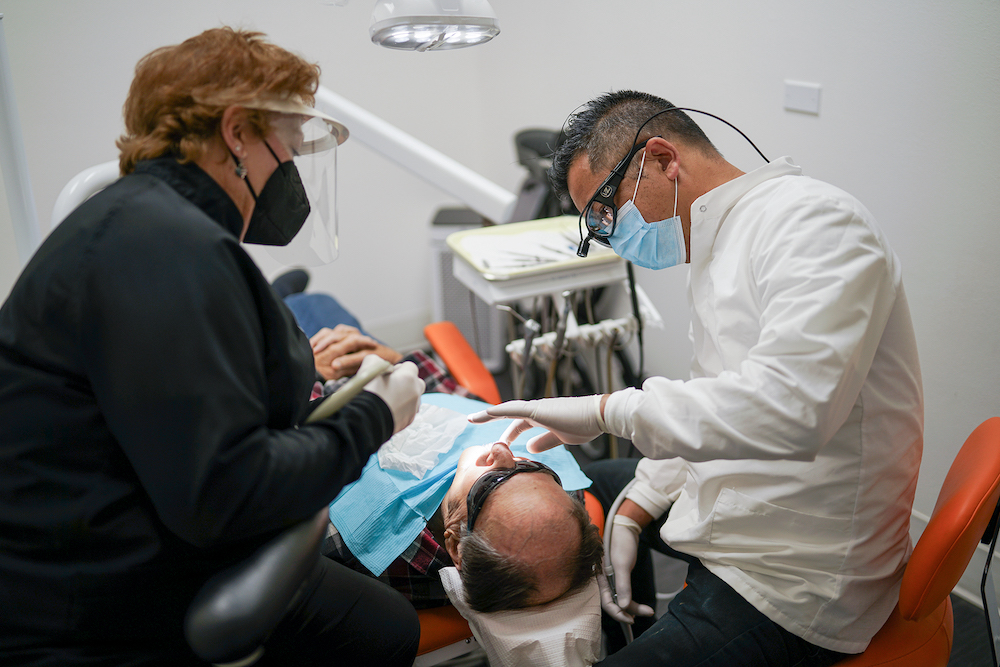
Surgical tooth extractions are actually the most common surgical procedure in the United States. In most cases, when a tooth is removed, it’s a pretty straightforward process. Sometimes though, it’s a bit more complicated and requires a more involved procedure. Here’s why tooth extraction happens in the first place, why a surgical extraction of teeth may become necessary, and how to care for your mouth after surgical extraction.
Although saving your teeth is always desired, there are cases when teeth need to be removed. The reasons include trauma, disease, and crowding in the mouth.
When a tooth cannot be repaired using a crown or filling, an extraction may be the best option. Teeth that aren’t supported by enough bone because of periodontal disease may also need to be removed as well as infected (abscessed) teeth that don’t respond to root canal treatment. It’s also not uncommon for an orthodontist to recommend extraction or two before braces because of crowded teeth. Similarly, wisdom teeth are frequently extracted because they may be impacted or do not have adequate room to fully erupt into the mouth.
What is a simple extraction? When a tooth is visible above the gumline, and your dentist can easily remove it with forceps, all you need is a simple extraction.
If, however, your dentist needs to remove gum tissue or bone to extract your tooth, you’ll likely need a surgical extraction. No worries, though. With today’s technology and dental advances, your comfort and safety will be supported. You’ll need stitches and will be likely be prescribed pain medication so that you can heal quickly and with the least discomfort.
By taking an x-ray and examining your tooth, your dentist can usually determine whether or not you’ll need a simple or surgical extraction. There are times when a simple extraction requires a surgical procedure, though. For example, if a tooth breaks off during the procedure, your dental professional may need to do a more extensive surgical procedure.
Other reasons for surgical extractions include:
With surgical extractions, you’ll most likely have stitches to care for. Regardless of whether your extraction is simple or surgical, it’s always important to closely follow your dentist’s post-care instructions. That way, you can set yourself up for a speedy recovery and avoid any complications. Here are some things your dentist will likely recommend you do following the procedure:
So if you need to get your tooth surgically extracted, you have nothing to worry about. With today’s modern procedures and anesthesia, the extraction will provide you with better oral health in the long run. Now you know why teeth need to get extracted and why your dentist might need to perform a surgical extraction. After treatment, you may need to care for your stitches and eat soft or liquid foods. Also, make sure you don’t brush the healing area. It’s always essential to follow your dentist’s instructions after a procedure and call them if you have any persistent pain or bleeding. So if your extraction procedure is coming up, you can feel confident and prepared.